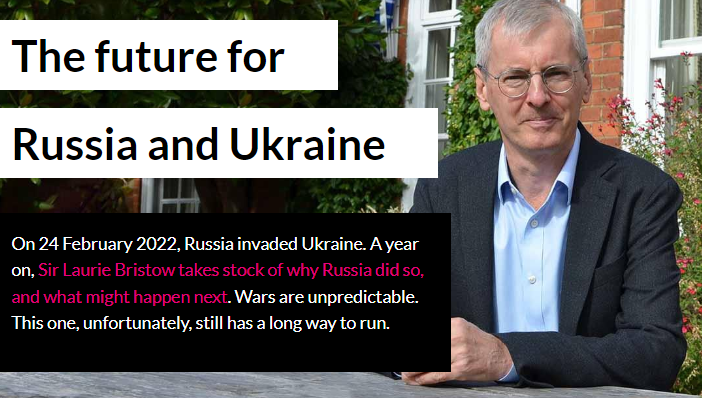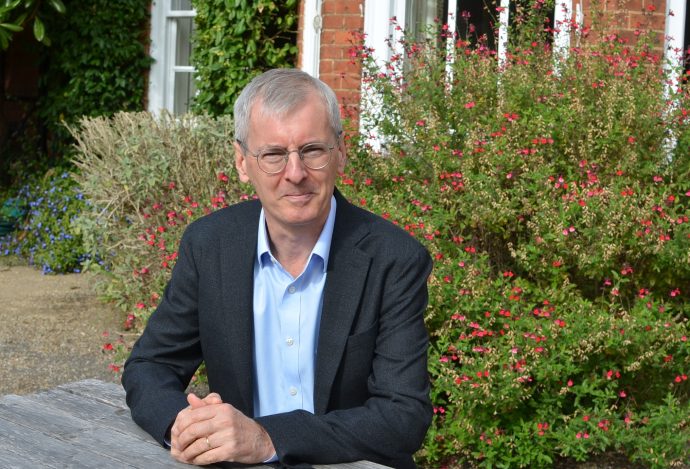On 24 February 2022, Russia invaded Ukraine. A year on, this article takes stock of why Russia did so, and what might happen next.
Wars are unpredictable. This one, unfortunately, still has a long way to run. I do not make predictions. I do set out some thoughts about how the war might end.
Putin is something of an amateur historian. In July 2021 he published an essay setting out his view that “modern Ukraine is entirely the product of the Soviet era…on the lands of historical Russia.” Behind this lie some key narratives. First, about the Great Patriotic War (World War II), in which the Soviet Union saved the world from Nazism. This narrative justified the Kremlin’s control over central and eastern Europe after 1945 and is used now to justify Putin’s invasion of a Ukraine supposedly taken over by anti-Russian “Nazis”.
Second, about the end of the Cold War and the dissolution of the Soviet Union. Putin does not share the West’s understanding of what happened or why in 1989-91. His formative experience as a KGB officer in Dresden in 1989 was one of horror and bewilderment at watching anti-government street protests. And of resentment at what he sees as the humiliations of the 1990s. Today’s Russia is unapologetic about the imposition of repressive regimes in central and eastern Europe after 1945 and is disinclined to accept that people in those countries wished to make alternative arrangements once they were free to do so after 1989-91.
What is the Kremlin trying to achieve through its narratives around the war that ended in 1945, the Cold War that ended in 1989, and the war Putin launched against Ukraine?
For the full article, see the University of Cambridge website here: www.cam.ac.uk/stories/putins-war-of-attrition.

One year on: Sir Laurie Bristow, Hughes Hall President, reflects on why Russia invaded Ukraine and shares thoughts on how it might end.
24.2.23





